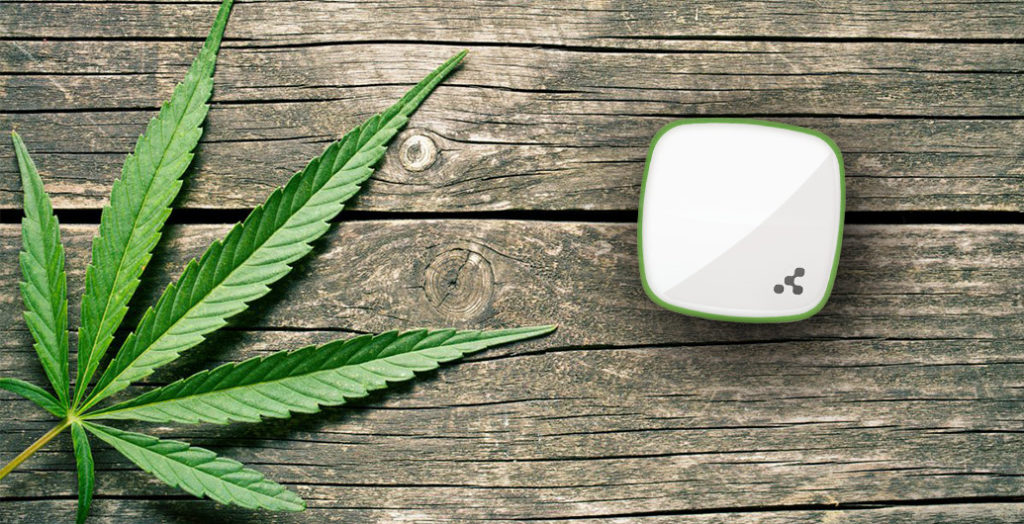
The IoT isn't new to marijuana plant tracking. Now, with marijuana legalization and increasing compliance laws, can beacons make a difference in a new kind of plant tracking?

Plant growers know the importance of data in making their plants flourish. That’s why many are turning to data to make each decision even better. From farmers to vineyard managers to flower enthusiasts, data can pave the way to the best practices yet. But data isn’t just good for optimization—it’s good for tracking. It’s good for providing a written record of assets for legal reasons. In the case of marijuana plants, data could be one of the biggest game changers yet.
Marijuana growers in Colorado are required by law to keep regular track of their crops—for obvious reasons. The growing and changing market requires that revenue be accounted for at every step in the chain and that includes when the plant is just a wee bud in a pot.
Cannabis tracking system aren’t just good for business, they’re often legally required. Given the sensitive nature of the product, it’s no surprise regulators want to know where it is at every stage of its life.
Table of contents:
For now, passive RFID tags are the tool of choice, sporting an ultra-cheap pricetag and the added benefit of being easily disposable. Passive RFID works like this: a tag is attached to an asset (in this case, marijuana plant tracking). As the asset moves around the space, employees manually scan it in order to register and record its presence.
Passive systems behave very differently from an active system like those powered by BLE.
For example, that 25¢ tag needs to be actively scanned by an employee in order to be registered.
The catch? They're not waterproof.
When moving from one room to another, it must always be actively registered. This can lead to errors and wasted time. Many complain about having to manually input data—repeatedly. Gotta love bureaucracy!

Marijuana plants in Colorado have to be tracked from "seed to sale." There's no ifs, ands, or buts--it's crucial that growers know where their plants are and are able to verify it with real data. For the last 3 years, businesses have been using RFID, and it's been tough going. That's why they spent 2 years lobbying for the chance to switch the Bluetooth Low Energy (BLE). Now, they're getting their chance.
The industry has rapidly grown in recent months and years, companies are beginning to get a handle on tracking technology. Businesses are weighing legal requirements, added value possibilities, and the overall returns. Now, many are making the move from the initial bare-minimum passive plant tracking to more active and meaningful methods. In this case, Bluetooth beacons.
Does your project need the right data? We talked to Thomas Walle, CEO and co-founder of Unacast, about data collection and how to put your valuable data to use.

How smart hospital solutions are delivering better clinical outcomes, greater efficiencies, and higher patient satisfaction through digital transformation using technologies like Internet of Things (IoT) and Artificial Intelligence (AI)
Turn your workspace into a modern one with Kontakt.io spatial intelligence solutions.
Learn how we can help improve employee experience, decrease carbon footprint, and
help you understand how your space is utilized in a SIMPLE & AFFORDABLE way.